Gambia
The African Union (AU) says it will cease to recognize Yahya Jammeh as president of the Gambia effective January 19, when his mandate officially expires.
The continental political bloc arrived at the latest decision after a Peace and Security Council (PSC)meeting held on Friday 13 January 2017, the same day as ECOWAS mediators returned to the country to mediate in the post election impasse.
Under point 5 of its 11 point resolution after the meeting, the AU outlined measures it will take ‘‘with a view to ensuring respect for the will of the Gambian people.’‘
Whiles declaring the support for the December 1, 2016 poll results the AU Council said it ‘‘strongly reaffirms the AU’s zero tolerance policy with regard to coup d’état and unconstitutional changes of government in Africa;
‘‘Further Declares that, as of 19 January 2017, outgoing President Yahya Jammeh will cease to be recognized by the AU as legitimate President of the Republic of The Gambia;
‘‘Warns outgoing President Yahya Jammeh of serious consequences in the event that his action causes any crisis that could lead to political disorder, humanitarian and human rights disaster, including loss of innocent lives and destruction of properties,’‘ it added.
It is unfortunate that we are starting 2017 with problems in #Gambia. If not properly resolved, Gambia will set bad example: Dr.
— African Union Peace (AU_PSD) January 13, 2017DlaminiZumapic.twitter.com/OmhtwUWWKw
The AU reiterated its support for the ECOWAS mediation efforts which according to reports ended in deadlock after the mediators – Nigerian president Muhammadu Buhari, co-mediator Ghana’s ex-president John Dramani Mahama and ECOWAS Chair Ellen Johnson Sirleaf met with parties to the impasse.
Special Representative of the UN Secretary General, Mohammed Ibn Chambas told the media after the meeting that ECOWAS will consult the AU Peace and Security Council on its next move.
“A High-level delegation has returned to Banjul today, as we meet here, January 13th, in an attempt to persuade President Jammeh to abide by the elections results and to step down. They plan to leave no doubt about the determination of ECOWAS to use all necessary means, including force, to have the will of the Gambian people upheld.
“Should this be deemed necessary, ECOWAS intends to seek the endorsement of the African Union Peace and Security Commission and the formal approval of this Council to deploy troops to the Gambia,” he stressed.
Jammeh initially accepted his loss at the polls before reversing his position citing irregularities in the results. His party have filed a poll petition which the court failed to sit on for lack of judges.
Their latest court application is an injunction to be placed on the inauguration of Barrow but the court has yet to set a date to sit on that. Jammeh’s term expires on January 19 when his successor is expected to be sworn in.
Scared Gambians fleeing
Thousands of Gambians fearing unrest in their country, plunged into a political crisis for more than a month, have fled to Senegal and Guinea-Bissau, the UN High Commissioner for Refugees (UNHCR) in Guinea-Bissau has disclosed.
“Several thousand Gambians have traveled to Senegal in the last ten days to escape the strain on the outcome of the presidential election,” UNHCR said in an article on its regional website.
They are “mainly children”, according to this UN agency, explaining that many parents “fearing potential disturbances” have decided to evacuate their children to Senegal.



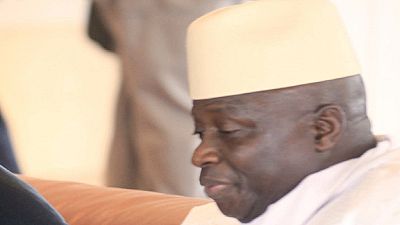

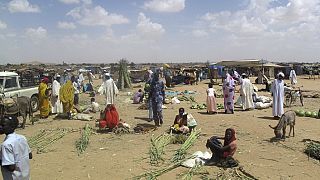
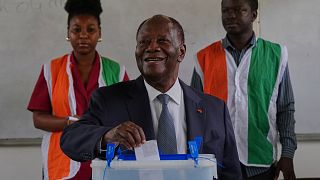
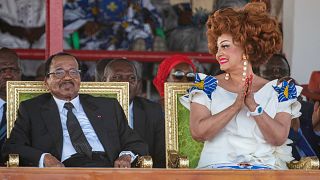
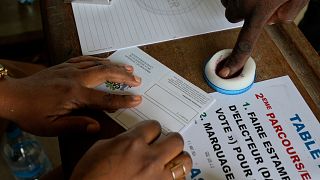
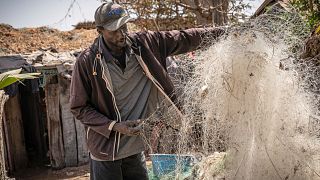
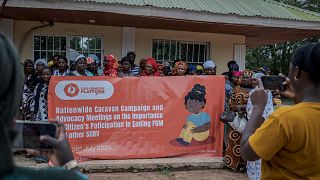
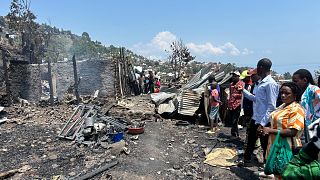
Go to video
Raila Odinga laid to rest as Kenya faces political uncertainty
00:21
African Union's partnership with UN "essential to confronting threats" facing Africa
01:41
ECOWAS chief makes surprise visit to Burkina Faso
01:43
African business world prepares for fourth edition of Unstoppable Africa summit
01:13
Sierra Leone’s President pushes for Sahel states to rejoin ECOWAS
Go to video
AU backs campaign to replace distorted Mercator map